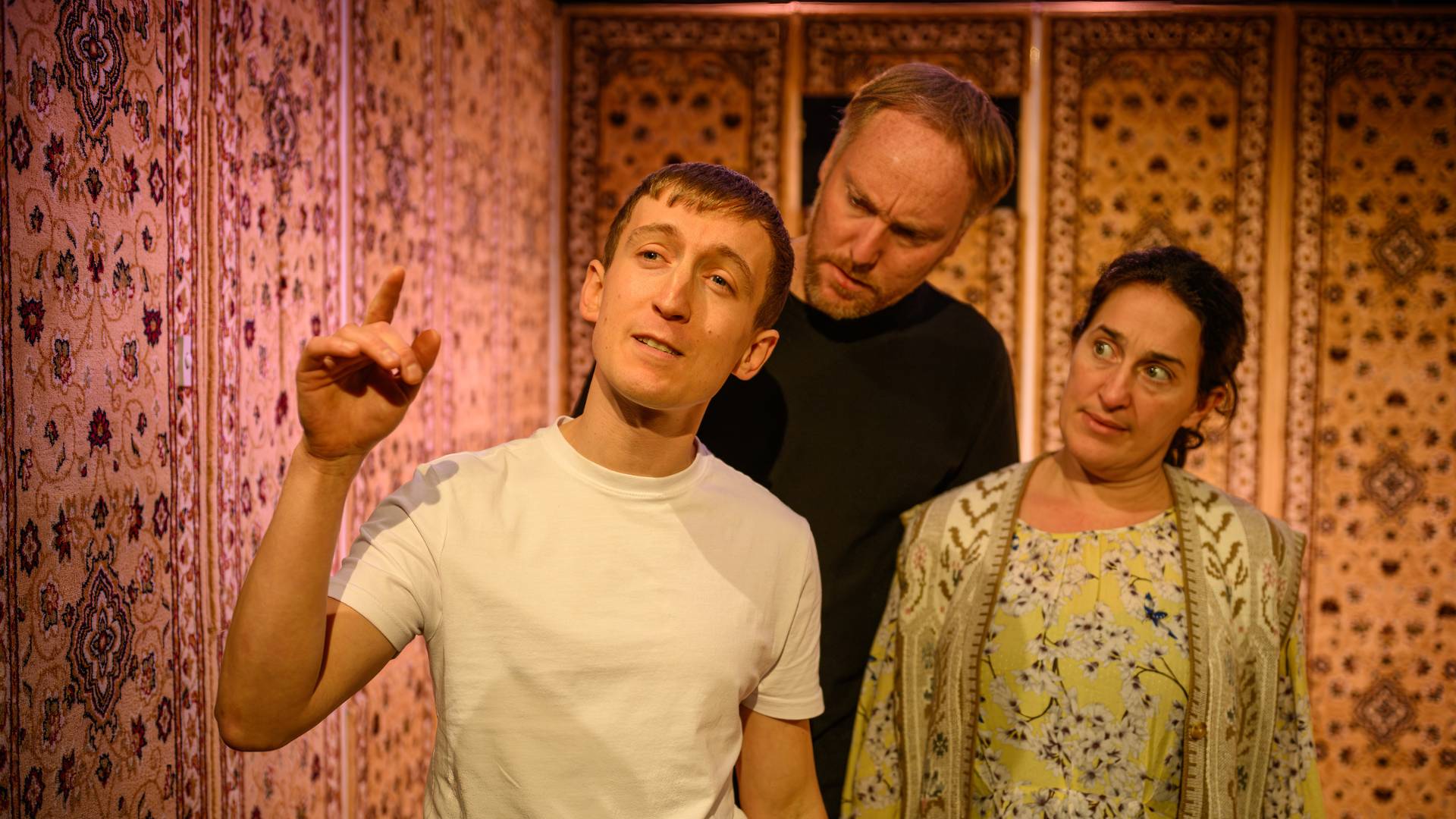Kate O’Connor directs the UK premiere of Cuzco from one of Spain’s most acclaimed young playwrights, Víctor Sánchez Rodríguez. Marking the first time in seven years that Theatre503 have programmed a play in translation, 2019 will kick off with the English-language premiere of the multi-award play which explores intimacy in a globalised world. It has been translated in collaboration with William Gregory who has worked on productions for international projects at the Royal Court Theatre and The Gate.
Cuzco is at Theatre 503 23rd January to 16th February 2019.
You’re directing Cuzco at Theatre 503, what can you tell us about it?
Cuzco is a tragic love story about a Spanish couple who travel to Peru to try to save their relationship. It’s a powerful intimate drama, through which the playwright is asking questions about why we travel, how we live in a globalised world, and what it means to be from a certain place or speak a certain language today. All of this is explored against the backdrop of the Andes, with its many layers of history and culture. It’s a mysterious piece which takes the characters on a voyage of self-discovery – the answers they’re looking for are always just beyond their fingertips. In rehearsals we’re discovering moments of tragedy, comedy, and a strong sense of the uncanny running through everything – we can’t wait to share it with audiences.
What first attracted you to direct the work of playwright Víctor Sánchez Rodríguez?
Cuzco is the first and only piece by Víctor which I have read – I’m very much looking forward to reading his latest play La Florida, a noir thriller which has also been translated by William Gregory. Having got to know him, I’m fascinated by his insights into our generation and the way he chooses to express them – in particular his interweaving of the personal and political, which seems to me very true to the way in which society impacts on our lives. Víctor has his own company and directs a lot of his own work, which means there’s a fantastic theatricality to his writing which certainly drew me to Cuzco. Also a surreal sense of humour!
How closely have you worked with William Gregory on the translation and in rehearsals?
We’ve worked together very closely in preparation for this production at Theatre503. William undertook the translation himself over eighteen months ago, with various readings and workshops feeding into his process – so the actual words on the page are all him. The collaboration got really interesting once I started researching and preparing for rehearsals; there’s so much he can help unpack about the cultural conversation going on within the piece, how the language communicates this and how we can extend it to an audience in the UK. He’s been in rehearsals with us answering the actor’s questions about life in Spain, linguistic choices and Víctor’s vision – an absolutely invaluable presence.
What do you think will appeal to British audiences most about this Spanish story?
It’s no coincidence that Víctor chose Peru as the destination for his couple – part of their disorientation comes from the experience of visiting a country that used to be a Spanish colony. They come face to face with repressed histories, through the lens of commercialised tourism. Like Spain, the UK is also a country which doesn’t teach the violent past of its own empire in schools, but instead still glorifies it in public monuments. So, I think there is a lot that British audiences can identify with in the journey of these two characters. But the core concerns of our generation and the romantic narrative are universal – so I think Cuzco could be translated into many languages and remain accessible across the globe.
Is there an added challenge for you as director to make sure the original work isn’t lost in the translation?
William’s process is to remain faithful to the original whilst bringing out resonances for a UK audience, and he has done this absolutely brilliantly in this translation; the text remains as beautiful and complex as in the Spanish, whilst entirely accessible in English. So, the danger isn’t so much that anything will be lost, but that we do justice to all that complexity in our production. We are asking the audience to make an imaginative leap in believing that the characters are Spanish and are speaking Spanish to one another; this produces really interesting moments of disjunction in the piece that heighten the themes of language and nationality. Theatre always asks audiences to make such leaps, to invest in worlds that are distant in time and space, so as a director I see this as a really exciting challenge.
What would you say to anyone thinking about coming to see Cuzco?
It’s rare for contemporary translated work to be programmed for a four-week run in London, outside of specialist international venues and festivals. Theatre503 is a renowned new writing theatre who recognised something special in Cuzco and are offering audiences an opportunity to experience the best of Spanish playwriting. This gesture is particularly important at this moment in the UK – whatever the final outcome of Brexit, it’s essential that we keep collaborating across borders with artists from Europe and beyond. The project was born from a spirit of cultural exchange and has been supported by organisations in both the UK and Spain, so we hope audiences will join us in this spirit also. Pack your bags, buckle your seatbelts and get ready for the journey!

















